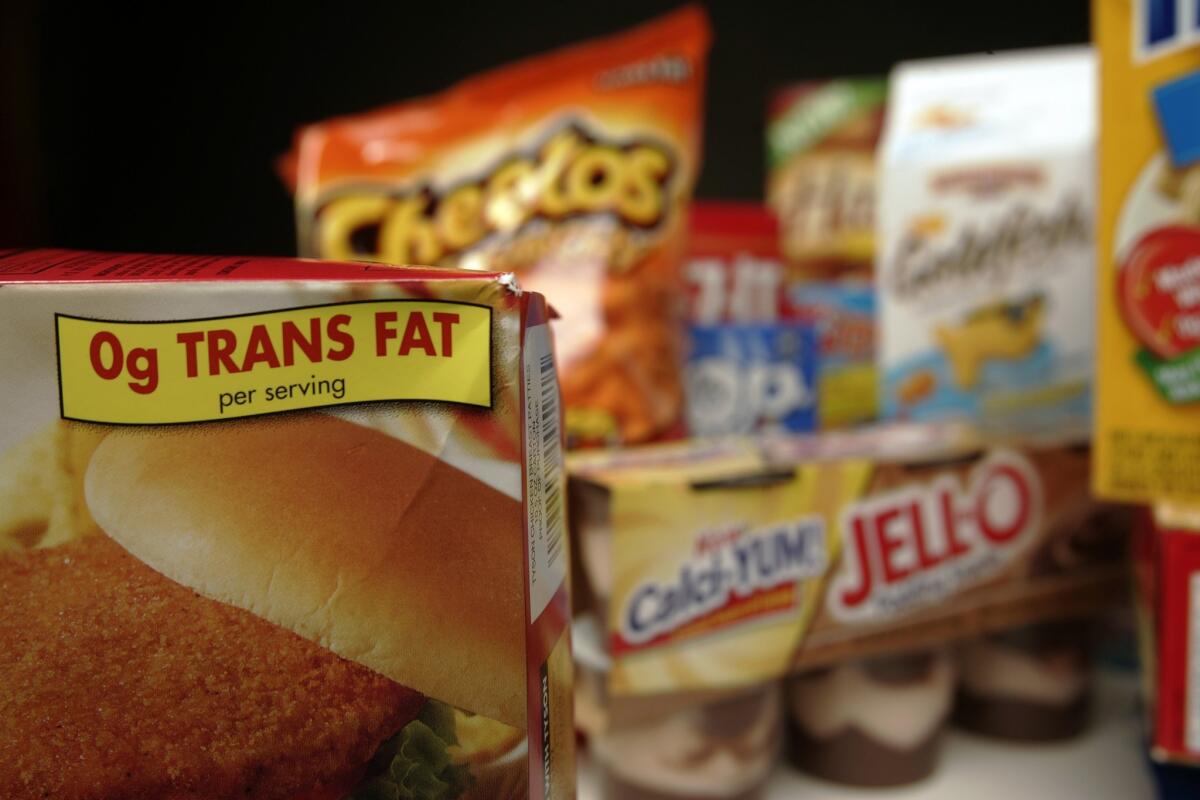Citing health risks, FDA moves to ban trans fat from processed foods

- Share via
The U.S. Food and Drug Administration on Thursday proposed a rule change that would eliminate trans fat from all processed foods in a move the agency said would prevent heart attacks and other heart disease.
“While consumption of potentially harmful artificial trans fat has declined over the last two decades in the United States, current intake remains a significant public health concern,” said FDA Commissioner Margaret A. Hamburg.
The agency has issued a preliminary determination that partially hydrogenated oils, the main source of artificial trans fat in processed foods, are not “generally recognized as safe.” That assessment is based on a review of scientific evidence and expert scientific testimony, the agency said.
If the change is adopted, partially hydrogenated oils would be considered “food additives” and could not be used unless authorized by regulation, virtually eliminating their use in foods.
A brief history of artificial trans fats
Food manufacturers would have to prove that trans fat is safe to eat. The Institute of Medicine, an independent agency, has concluded that trans fat provides no known health benefit and that there is no safe level of artificial trans fat.
The proposal now has a 60-day comment period to collect more data and give food manufacturers an opportunity to estimate how much time they would need to retool their products.
Already, companies have marketed many processed foods -- such as microwave popcorn, frozen pizza and coffee creamers -- that contain less trans fat. Public consumption of trans fat has also fallen since nutrition labels in 2006 began listing the amount of trans fat in foods.
The FDA said trans fat intake has dropped to 1 gram per day in 2012, down from 4.6 grams per day in 2006.
ALSO:
Wal-Mart mistakenly offers absurdly low deals on its website
Starbucks to hire 10,000 military vets and spouses in five years
No, Mexican Coke sold in U.S. won’t be sweetened with corn syrup
More to Read
Inside the business of entertainment
The Wide Shot brings you news, analysis and insights on everything from streaming wars to production — and what it all means for the future.
You may occasionally receive promotional content from the Los Angeles Times.










